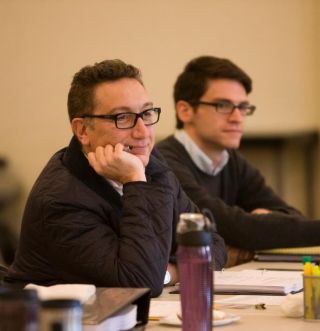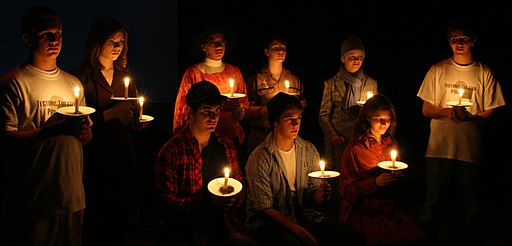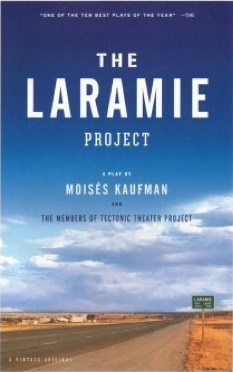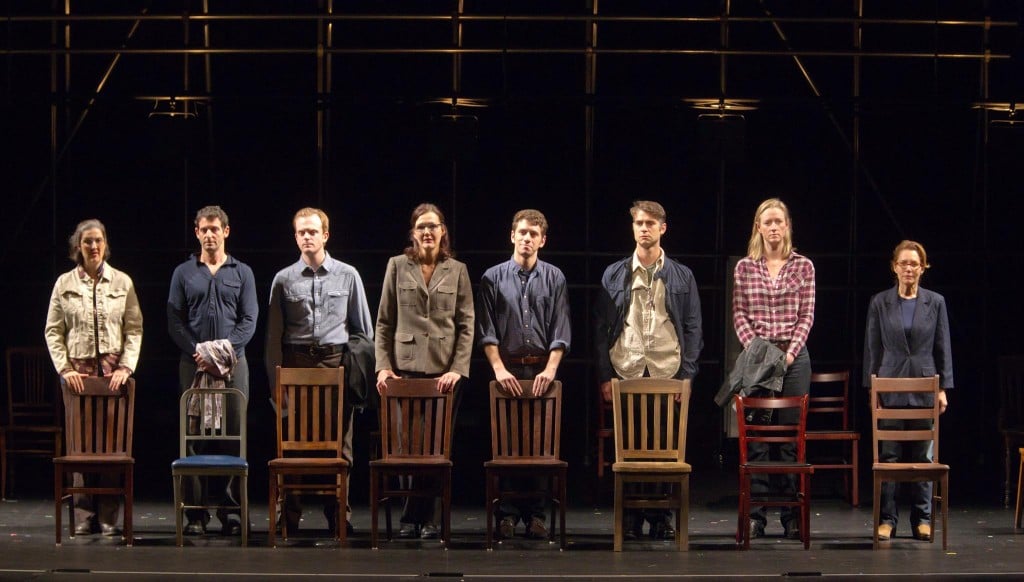Moisés Kaufman’s Having A ‘Moment’ At UNT
ArtandSeek.net February 9, 2018 22To make “The Laramie Project,” Moisés Kaufman and his theater company interviewed hundreds of people about the murder of gay college student Mathew Shepard.
The play has become one of the most performed pieces of contemporary theater. Now, Kaufman is artist in residence at University of North Texas.
In our weekly State of the Arts conversation, I speak with Kaufman about his unique approach to theater.

Award-winning playwright and director Moisés Kaufman will serve as 2017-18 artist-in-residence for the Institute for the Advancement of the Arts at the University of North Texas.
Photo:Tectonic Theater Project.
So Moisés, you created a theatrical method known as “Moment Work.” Can I get you to briefly describe the technique?
There are several ways in which plays are created. The most common way is that a playwright goes into a room, writes a play and then gives it to the director. Then the director and actors stage the play. Right?
And moment work says that if we come into the rehearsal space with some lights, with some sounds, with some sets, that we can begin to theatrical narratives. That doesn’t mean that we’re getting rid of the playwright. On the contrary, we’re asking the playwright to come with us as we create the play.
Moment work is a way of devising theater using all of the elements of the stage in the creation of narrative.

Actors gathered at the University of Maryland on Sept. 20 to rehearse for a staged reading of The Laramie Project: 10 Years Later.
Photo: Gene Carl Feldman via NPR
That means the things on the stage become part of the narrative as well, right? Like chairs can become obstacles or the lights can become sort of a character. A character that doesn’t have lines, but that can interact with the actor on the stage to interpret action or conflict.
Yes! It means also that you begin to really craft narratives that are much more theatrical in spirit. There’s still characters and there’s still dramatic action.
That’s why this idea of devising theater has been having such popularity with students and theater makers. It’s opening the door and saying, ‘Okay. We can get into a room and begin to create stories, theatrically.’
Most people will probably know you from “The Laramie Project” – the real-life story of Matthew Shepard. But you’re here in North Texas to develop a play with UNT students about a surrealist writer named Jorge Luis Borges. Does moment work translate well from fact to fiction?
Definitely, because it doesn’t matter what work you’re devising. Sometimes the theatrical narratives can start from a “real-life event,” sometimes it starts from a short novel, sometimes from a short story (like in this case). So yeah! It adapts to whatever your working on, because it’s not about the source material. It’s about what you do with the source material.
Where are you mining for material for this story?
We started with one of his short stories that we fell in love with. It’s called “The Circular Ruins.” But we’ve also been looking at a lot of his other work. His poetry, essays and such. The man was a genius, so there’s a lot of material to draw from.
What is it about him that fascinates you?
He finds a way of telling stories that goes to the heart of who we are as human beings – of how we live in the world, of what we believe and how our systems of beliefs come about. A lot of people call him the Latin America Franz Kafka, because he also shares some of Kafka’s fascination with dream and repetition and with the unknown.
You’ve been in North Texas for almost two full weeks. And you’ve been working with the students at UNT. How have they reacted to the technique?
Oh! They’ve been wonderful. The students here have been really eager and hungry and curious. It’s interesting, sometimes I go to bigger colleges in larger cities and the students there are a little more jaded. Here, I find that the students are very hungry, very curious, very open. It’s been a delight.
You were raised by an Orthodox Jewish family, you’re the son of a Holocaust survivor and grew up in a the deeply Roman Catholic country of Venezuela. And I read that you’ve said you felt very isolated. And I wonder if theater helped you with that?
Meryl Streep spoke about this recently. And she said that she didn’t fit in, so she started looking at people around her and imitating them, because she knew that if she could imitate them well enough that they would accept her. She said that some of the best performances of her career were in high school. She was trying to be other people.
I think for me – because I realized early on that I was gay and that I was inside of an Orthodox Jewish community inside of a Catholic and very machisma country – I realized that I was an outsider that was twice removed. That sense of being an outsider gives you an an incredibly accurate perspective of social norms and other people’s behavior. You become a great observer of social interaction in order to survive. And I think that what we do in theater is recreate social interaction. So I think that’s why there’s a connection there.
Are we going to get to see this play in the Spring?
I think so. I think we’ll show about 15 ot 20 minutes of something. I mean, it’s not going to be a full play. Instead, it’s going to be a sketch of something. But it will let you see what we were thinking about and what we were playing with.
Interview questions and answers have been edited for brevity and clarity.











